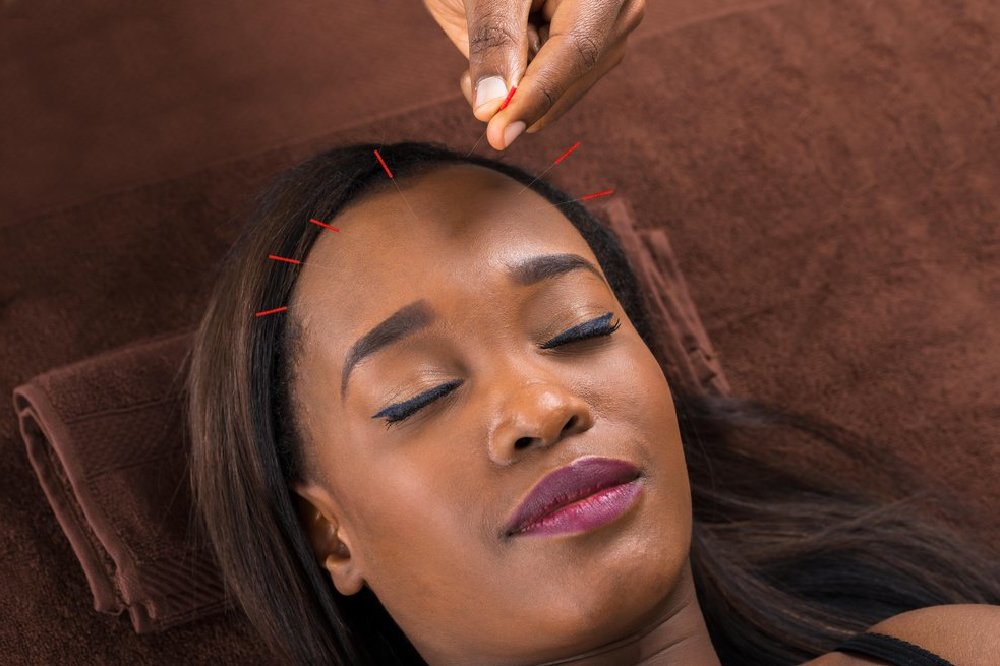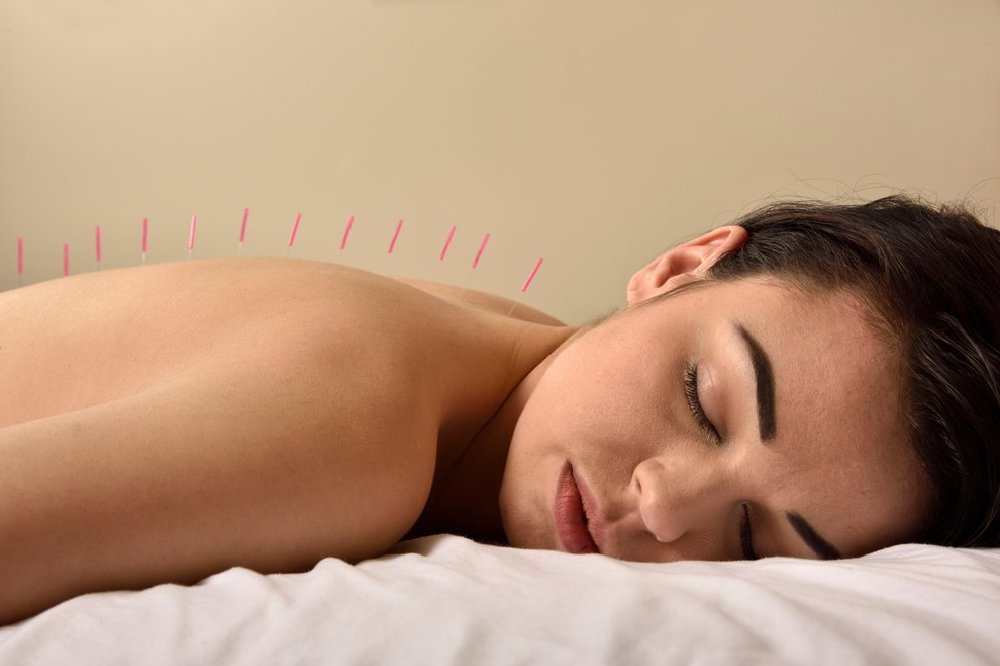
Acupuncture to Boost Sleep & Dreams
Let’s get to the point. The acupuncture point. Because acupuncture is one of the most effective complementary therapies out there, and in my opinion, it doesn’t get enough credit. With that said, it is an approach that the NHS recommends often for a number of complaints, and King Charles himself is also said to be a big fan of acupuncture. However, it feels as though its benefits need to be shouted from the rooftops because there are a whole host of issues it can help with including all muscular skeletal issues, headaches, menopause symptoms, pain relief, and sleep complaints such as insomnia. It can even help to boost your dreams.
Acupuncture and Sleep
Let’s begin with how acupuncture can help sleep. Sleep is really, really good for us. Or as the 16th century writer Thomas Dekker said, Sleep is the golden chain that ties health and our bodies together. In fact, humans are better at literally everything measurable - cognitive tasks, athletics and many other performance-related undertakings - when they get enough sleep. Sufficient sleep means sleeping for about 30 years - approximately a third of your life.
At one point or another, you might find that you’re not getting enough shut-eye suddenly. When this happens it can be easy to allow negative thoughts to turn one or two bad nights of sleep into a problem. For many, reframing worries around sleep can help get back to enjoying peaceful slumber. That’s because your thoughts about sleep can frame what happens when you shut your eyes and these negative thoughts can have an even bigger impact on your health than the sleep issues themselves. Sometimes things can snowball and we find ourselves in a pattern.
Acupuncture is an effective approach to help get things back on track. There are a number of research studies that attest to this. In one study involving 3,811 patients, the findings showed a beneficial effect of acupuncture on participants compared with those who received no acupuncture. In fact, acupuncture was superior to medications, confirming that acupuncture appears to be effective in treatment of insomnia. (Source)
There isn’t one specific point that will help, in fact, it depends on the root of the sleep issue. An acupuncturist will explore possible causes such as menopausal symptoms, depression, stress, constitutional imbalance, pain or whether you’re a light sleeper. An acupuncturist can assess where your imbalance is and which acupuncture points to treat to help the sleep return to a normal pattern.
Rebecca Geanty an acupuncturist from a clinic in Norwich called Treat, she explains, “You always treat the whole person in acupuncture. We examine any patterns in a person’s sleep behaviour and this gives us the clues we need to assess which organ imbalances are present on an energetic level. An acupuncturist will assess the most common symptoms seen in sleep disturbances from a Traditional Chinese Medicine (TCM) perspective.”
So there are a range of different reasons why our sleep might be impacted. For some they might find it hard to get off to sleep in the first place, others find it hard to stay asleep or sleep alone. Some people are light sleeping or have vivid dreams/nightmares. Whereas some point experience insomnia where they wake in the early hours and are not able to get back to sleep again. For others, sleep might be impacted by pain, sadness, overthinking, anxiety, irritability, pain or discomfort related to another condition.
Rebecca added, “Either way, once we’ve assessed a patient and determined which aspects of sleep are being impacted, we can then diagnose the patterns of disharmony or what we call, the TCM syndromes. Acupuncture also explores other intricate types of exploration through the use of a Traditional Chinese Medicine Pulse and Tongue diagnosis, an approach which has been used for thousands of years to provide an insight about the internal balance of the body”.
“Once we’ve conducted this special kind of assessment – which also incorporates your lifestyle and symptoms - we’ll then choose specific acupuncture points that relate to an individual’s unique patterns and link these to the sleep related concerns. For example, the acupuncture point called ‘Heart 7’ (also known as Shen Men) is located at the wrist. This is a great point for sleep and helps by calming the mind.”

Acupuncture and Dreams
Acupuncture can even help people to dream better though assisting with better sleep. There are points that can support an individual who wishes to connect more with their dreams. For example, dream interpretation has long been a key part of diagnosing health issues in ancient Chinese medicine. The Neijing and Ling Shu are two of the most important classical texts in Chinese medicine, highlight this practice, (Source). In simple terms, in Chinese medicine, dreams are seen as a way for the ‘ethereal soul’ to help the body get rid of harmful factors caused by improper diet, environmental factors such as a very hot, cold, damp, climate or bottled-up emotions. Integrating ancient Chinese insights into dreams with modern neuroscience and psychology, we can develop effective ways to support and help a person holistically.
In fact, acupuncture also offers a multifaceted approach to addressing nightmares by targeting both the physical and psychological aspects of sleep disturbances. Firstly, the insertion of fine needles at specific points on the body helps to regulate the nervous system, promoting relaxation and reducing overall stress levels. By alleviating tension in the muscles and enhancing blood circulation, acupuncture contributes to a more balanced and restful state conducive to better sleep quality.
Acupuncture stimulates the release of endorphins and other neurotransmitters associated with mood regulation, which can help alleviate anxiety and depression often linked to recurring nightmares. As individuals undergo acupuncture treatment, and experience improvements in their mental and physical wellbeing, the frequency and intensity of nightmares tends to reduce, allowing for a more peaceful and rejuvenating sleep experience.
What to Expect
For some people, the thought of having needles inserted into the skin may bring up some fear, especially if you’ve never tried it before. However, acupuncturists use needles that are very different to the type of hypodermic needles used in the medical profession. Medical professionals use needles that have a hollow tube so that they can contain fluid. However, acupuncture needles are very different, they are also made from a high-grade medical stainless steel, however, unlike medical needles, they are solid, super fine and much smaller.
Acupuncturists use a plastic guide tube to facilitate the insertion. Then, this is gently pressed on the skin to create a distraction from any discomfort as the single-use needle is gently inserted smoothly. To put it into perspective, medical hypodermic needles used for injections are 25 mm to 38 mm whereas acupuncturists use 0.12 mm – 0.50 mm thickness on average. That’s quite a difference in size. Once the needle has been inserted you might feel a range of different sensations. Each point might feel slightly different to the next and sensations range from a mild tingle or slight sharpness to a dull ache. These are all perfectly normal, and actually, often a good sign.
The needles are left in for anywhere between 20-45 mins usually. You’re left to lie back and relax – and you’ll be surprised at just how relaxing it is – many people fall asleep on the treatment bed, and others benefit from good sleep in the coming nights and weeks.
About Treat
Treat is a Norwich-based Health & Wellbeing Clinic. Treat therapists offer over 50 different health and wellbeing therapies, beauty and spa services. https://www.treatnorwich.co.uk/
By Leah Larwood
Tagged in dreams

